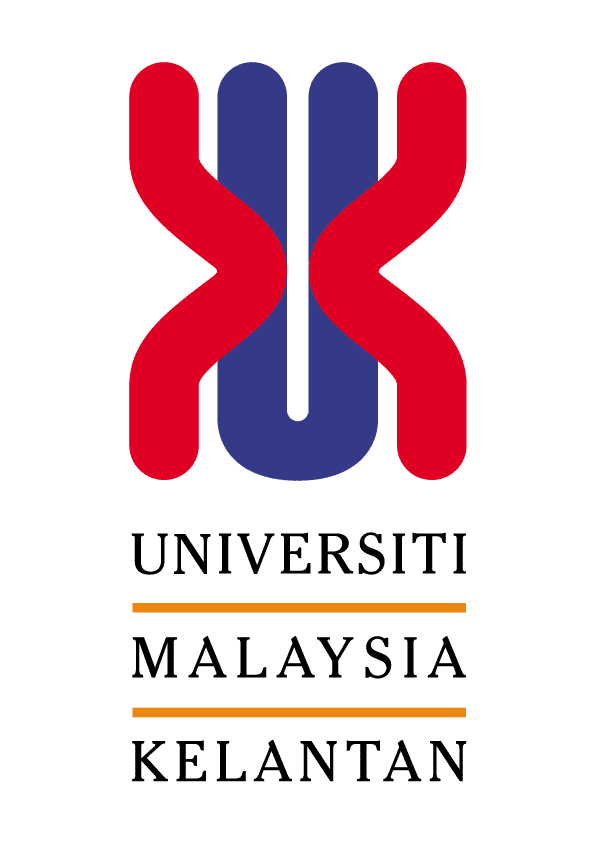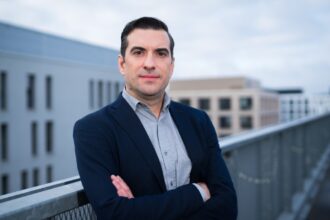Author, Jasni Sabri
The University is a producer of highly educated and talented human beings to fulfil the current and future knowledgeable workforce for the country and the solution providers of problems faced by the public, which comprises the stakeholders. The University produces graduates every year after a period of study which begun from admittance for registration of undergraduate or postgraduate studies. The University can also be a place for continuing education to keep abreast with the most current development of knowledge, to get new exposure to experiences, skills and talent development which is opened to the public to participate.
The graduates produced following a period of study are very much different. They have undergone academic and personality transformation from the systematic curricular and co-curricular programs that address the national agendas. The education received by university students is more focused which can direct the student to their desired career path. Unlike before admission with secondary level education at schools, they are now much more holistically educated and knowledgeable where further thinking ability and skills to make decisions, derive ideas and provide solutions to problems are imparted. Every graduate starts with zero experience in the workforce. However, the study program at tertiary education do provide early exposures to working life outside the campus in their out campus industrial practical trainings which actually implies that the graduates are not actually with zero experiences but had the necessary experiences to start their working life and built the extra confidence from here following graduation in the work market.
These are made possible by academicians with dedication and commitment and equipped with special expertise and talent to help develop Malaysian citizens to contribute to the socio-economic growth of the country. The production cycle yearly continues in line with the existence of the University to meet the demand of educated Malaysian citizen be it in the science and social science areas for the country.
Co-curricular activities for the students in the University complement the roles of the Faculties in academic matters to produce future leaders in their working life for the country. The uniqueness of University Malaysia Kelantan (UMK) is that the graduates of all Faculties are imparted with curricular programs that are also embedded with entrepreneurship education and entrepreneurial attributes and skills. Such skills can make the graduate mentally resilient and able to face the challenges with leadership qualities to apply what had been imparted in the much challenging scenarios in the national and international arena.
The University is also a place where lecturers to be, are trained to become experts through post-graduate studies with a Master to a PhD degree. The lecturers then can pursue post-doctoral studies (post PhD study) and/or undertake special examinations to be further recognised as experts in their areas of specialization such as through speciality organisation. An example of a speciality organisation that conducts the examination to evaluate the registered candidates is the Malaysian College of Veterinary Specialist for Veterinarians with Doctor of Veterinary Medicine undergraduate degree.
Where do the graduates go after graduation?
The day of registration and graduations can be the happiest moments in the life of University students. The graduates will have much rejoiced if graduation is accompanied by accepted enrolment as an employee already in the job market very soon. The graduates come from the public and following the graduation, will return to the public as job seekers who engage with the stakeholders to work with them. The stakeholders are people who deserve to acquire benefits from educated graduates.
The graduates can contribute to the growth of the country from what learnt in the University through their chosen career path. The public can be the job creators who look for graduates to work with them. These job creators can come from the government and private sectors, the non-government organisations, the industries and the community. The stakeholders, such as the industries can be the solution seekers of graduates and the University’s expertise to solve their problems that promote production and income generation for the company. The current direction in undergraduates programs also encompasses the entrepreneurship attributes and training that develop them as job creators for the jobless or job hunting public.
Marketing of graduates and the expertise in the University to the public
Graduates and expertise marketing to the public, to be utilised in the workforce of a country for nation building are important. The public is more likely to know the existence of a University but may not know the trained human capital and areas of strength available or produced by the University. The public needs to be made aware of how a University can influence the prosperity of their life that can affect their daily businesses from the human capital produced and what public-driven benefits they can offer. We may be immensely surprised if some stakeholders are not aware of the existence of a University or the establishment of a Faculty which is also available in more than one University. This may not be uncommon and engaging the public to know what services, assistance, support and knowledge a University can provide through strategic marketing and how to get access to these, are of paramount significance.
The marketing of university graduates and expertise can be achieved by the following approaches:
1. The response by the industries of graduating students on industrial training and working graduates
The existence, roles of a University and the quality of a University’s graduate can be much known from stakeholders from the performances of students on industrial training in the industries during their study and graduated seniors in the work sectors. The performances of the students and graduates themselves can secure the marketing of the university product (human capital) for future engagements with the stakeholders. In such a situation, the graduating students may have been booked by the relevant stakeholders even prior to graduation. The good performances of the students had gained the trust and confidence of the stakeholders to employ more graduates to work with them. Good messages of the performances and quality of the graduates can get across and spread very fast among stakeholders. And so is the negative aspects of performances.
In a way, this implies that the quality of the graduates can arise from quality, adequacy and qualified lecturers complemented by the availability of basic academic requirements in the Faculties which need to be maintained at optimum standard for talented human capital production. In other words, the quality of the output of the University, the students, depends on the input, the lecturers and the approaches to select the qualified students for any yearly intake.
2. Social Media as a medium for marketing
Efforts to market strength in expertise and research innovations should be continuous. The website alone is not adequate though it can be the medium easily accessible by the public through the use of smartphones. Other digital marketing approaches are through Facebook, Linkedin applications or even the Instagram and Youtube. The scope of outreach through the digital platform is so vast, with both national and international coverage. The digital media can also be the channel to market what the experts and the graduates can contribute to the socio-economic importance of the country. It can be a platform to inform the achievements of winners in national and international competitions of research products, services and technologies to the public to secure engagement with stakeholders that requires such talented relevant champions produced in Universities.
3. Harnessing the writing culture beyond academic and research journals
The exposure of the University’s strength for the benefits of the stakeholders, the customers, can be made possible by harnessing the desire and enculturation of lecturers to write articles in a popular magazine or other digital media of the university or non-university publishers on their expertise beyond that in indexed journals. This attempt can attract their engagement with the stakeholders relevant to their strength and the problems of the stakeholders to be solved. The articles should be in the best understandable words to the end users where “scientific jargons” should be transformed into layman’s terms that can be applicable to the end users for the translational impact to happen. Results of research findings should not end up in journals sought for, read and understood by the academic community only and fulfilling their set key performance indicators, but can be outreached by the much-wanting communities who can apply the simplest of research findings and innovations that positively affects their daily life.
Knowledge to be expressed and applied by the end users from academic sources and research can be made easily available in layman’s approach write-up magazine published by the university and distributed to the public through any available opportunities where the public attendance is expected to be high. This published layman’s style writings such as in bulletin should be attractive and be skillfully written to avoid the unnecessary distraction of the flow of reading pleasure and enthusiasm but a sought for the bulletin to solve daily issues or continuously disturbing problems and challenges of the societies. The bulletin can be produced bi-monthly of already achieved results from research and those potential discoveries. The bulletin can also be opened to the public to write what are their hopes of new inventions to address current and future issues and challenges in daily life from the University experts who are the contributors to the bulletin.
4. The University as the transformation agent
The University is the transformation agent for translational impact on the community and country. The Transformation Centre in the campus can be a platform to market the strength of the University. The research and innovations of the talented human capital in Universities can make a beneficial transformation to the societies and the country. This is because the University seeks new knowledge that can improve the quality of life and generation of well being. The existence and roles of the transformation centre should be made known to the public especially the nearest to the University campuses. Knowing the centre is never enough. It should be a very welcoming place to the public, well advertised of the visiting hours and with well dedicated and engaging staffs who passionately convey information and assistance sought by the public. It should not be a unit that solely goes out to the public but is ever ready to receive the visiting public who urgently need assistance and are more comfortable with effective face to face interaction with the expertise or facilities that provide services. Such engaging centre will market the professionalism of the staffs and the experts as well as the efficient governance system of the University that professionally welcome the public as solution seekers.
5. Marketing strategies of Faculty
The strength of the Faculty can be made known through the invitation of leaders and committee members of societies, associations or agencies which have the same interest as the Faculty, to meetings or programs organised by the Faculty. These organisations can be “the friends of the Faculty” where through regular gathering can be the marketplace to introduce what and how the Faculty can contribute to their importance and desires pertaining to both the Faculty and organisations objectives of their establishment. The meetings or programs can be the platform for the invited guests to share their issues with the experts among Faculty members and a venue to solve problems or to share ideas and provision of consultation to improve the usual way things are carried out. When the issues cut across other expertise in different Faculties, a transdisciplinary approach can be adopted involving different expertise from different sources with the organising team.
The meeting can also be the marketplace where the graduating students can be announced for any stakeholders to have them as their potential employees. It is not uncommon graduating students have been booked by stakeholders prior to their imminent graduation ceremony or a channel where feedbacks of the performances of employed graduates can be received.
6. Establish networking through academic or non-academic gatherings
Academicians can make attempts to go beyond the lecture halls to see the public. They can market their existence and worth to the society by participation as attendee or presenter such as in gatherings like seminars, conferences, talks and research carnivals organised by the University or associations. This will encourage knowing “who is who” and what is next after “knowing who”? These are the possible venues to initiate and develop networking to advertise their expertise and the overall promotion of the University’s strength to the potential market relevant to their area of expertise or the niche of the University. However, to gain the most for this marketing strategy is to ensure that the relevant and important participants are in the list to be invited for potential engagement in the market and the passion to know one another in the congregation. The attained synergy will path the way for future collaborations on any beneficial aspects for both parties.
7. Exhibition of books published by lecturers in websites, place of public attention and gatherings
Books written from research works can be a good way of marketing the experts in the University. The question is, does the books reachable by any potential reader including the stakeholders who can be the end users of the University’s production? This cannot happen if the published books are within reach in the University’s library only. Books published by academicians should also be in the other popular or known book market outside the campus. Opportunities available to exhibit the books other than in yearly book fairs can be grasped, such as in conferences and other gatherings to market the strength of the University. More importantly, the books from research can be written in a way be able to be read, understood and possibly applied, not confined to the scientific community but by the public of various education background.
8. Accreditation of Laboratory Services
There are laboratories in the Universities that provide services not only to the internal community but the customers outside the campus. Therefore, such services are marketable to potential customers. Services from laboratories with experts or developed by experts and moreover, with a fast turnaround time for results can be more attractive to many potential clients. The income generation from laboratory services can be promising and can be more than satisfactory. However, the confidence of customers on the ability and quality of the services can be enhanced if the laboratory services are accredited which makes the laboratory, with such standard, to be sought for amidst the existence of other competitors of similar services.
The effect of marketing talent and expertise from the University
The uniqueness of the University can be highlighted in many ways through organised marketing strategies. This will make the University’s existence and contribution to remain relevant to the community and country.
This is important because the public deserves to know what the Universities have to offer because graduates and trained experts become applicable when they can contribute to the stakeholders in the public who are the main players in the job market. The stakeholders have the capital and are users of products, services, modules, procedures, including the developed and improved technologies by the researchers and innovators.
Through these marketing attempts and processes which encompass the implementation, monitoring, evaluation and possible redeployment or sustenance of the strategies, continuous progress is foreseeable and can make any strategy a reality.
Professor Dr. Jasni Sabri is a Professor of Veterinary Medicine and Director of Research Management Office, Deputy Vice Chancellor Office at Universiti Malaysia Kelantan. Follow him on ResearchGate

















